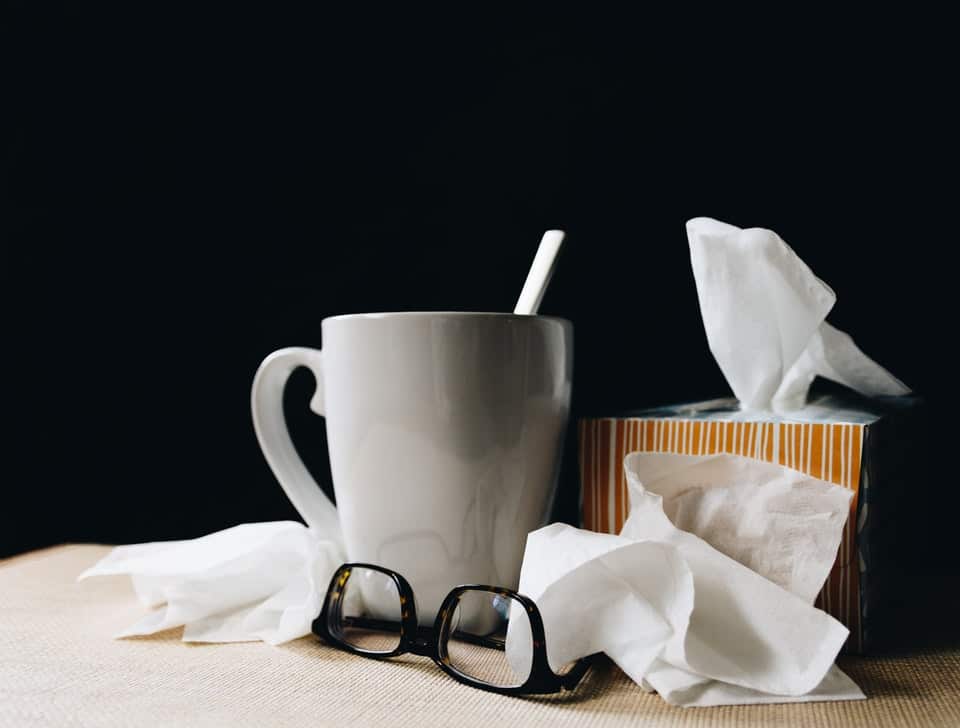In the age of COVID-19, symptoms like a stuffy nose can be worrisome, even if they are short-lived. However, if you have been waking up with a stuffy nose that resolves later in the day, you probably have no reason to fret; this is fairly common, and there are many possible triggers. Some of the most common ones are outlined below.
What Exactly Is a Stuffy Nose?

A stuffy nose, also known as nasal congestion, occurs when the nasal passages are inflamed or blocked. There are two major types of nasal congestion: rhinitis and sinusitis.
Rhinitis is a term that describes inflammation of the nasal passages, which may cause:
- Enlarged blood vessels in the nose
- Increased mucus production
- Swollen nasal tissue
- Blocked airflow through the nose
Sinusitis describes inflammation in the sinuses, which are the air-filled pockets behind the cheeks, nose and forehead and between the eyes that produce mucus. In addition to stuffy nose, sinusitis may trigger:
- Pain/tenderness around the cheeks, eyes and forehead
- Poor sense of smell
- Headache
- Toothache
- Mucus drainage
- Bad breath
What Causes a Stuffy Nose?
Now that we’ve distinguished between some common types of nasal inflammation, we’ll discuss common triggers for a stuffy nose.
Allergies
Your immune system works to protect your body from diseases, viruses and infections. But for those with allergies, the immune system mistakes harmless substances such as pet dander, dust mites, foods, mold or insect stings or pollen as a dangerous intruder.
In order to fight off the intruder, your immune system releases antibodies called Immunoglobulin E (IgE), which causes your cells to release histamine. Histamine can increase your mucus production and cause swelling and itching; this is what causes your allergy symptoms.
If your stuffy nose is due to allergies, you may also experience skin irritation, itchiness, red/watery eyes or sneezing. Monitor your symptoms to determine if they worsen after spending time outdoors, such as at Piedmont Park.
Nasal Polyps
Nasal polyps are benign growths inside the nostrils. Polyps can disrupt the cilia (tiny hairs) in the nose and prevent them from clearing mucus and antigens.
Other symptoms of nasal polyps include nasal drainage, facial pain/pressure and decreased smell.
Irritation
Certain irritants like tobacco smoke can also cause a stuffy nose when you wake up.
One 2013 study found a high prevalence of chronic rhinitis for people who smoke. These results are supported by another study from 2017, which found that children exposed to tobacco smoke are more likely to develop rhinitis than those who aren’t.
For more information or to schedule an appointment, call ENT of Georgia today.